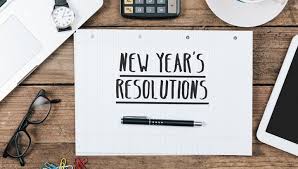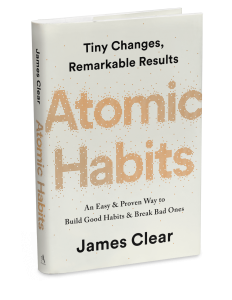No Real End in Sight
Some experts claim that this new year – 2021 – is the perfect time for a much-needed “fresh start”.
Others warn that more than any other year, it will be particularly challenging to turn over a new leaf.
Despite the change to a new calendar year, we remain stuck in the uncertainty of the pandemic situation of 2020 with no real end in sight.
And as most of us well know, the odds are stacked against us.
Given that resolutions only lead to lasting change about 8% of the time, should we even bother?
On one hand, resolutions are useful.
They give us hope and an opportunity to take stock of all the ways in which we may be living out of alignment.
This allows us to then course-correct.
On the other hand, we may simply be setting ourselves up for inevitable failure and disappointment.
And let’s be honest.
After the year we’ve had, do we really need more disappointment?

Create New Habits, not Resolutions
According to James Clear, best-selling author of Atomic Habits, we do not need more resolutions.
Rather, we need new habits.
Resolutions are outcome-oriented, whereas habits are process-oriented.
As Clear puts it:
“New goals don’t deliver new results. New lifestyles do. And a lifestyle is not an outcome, it is a process. For this reason, all of your energy should go into building better rituals, not chasing better results.”
So how do we build new rituals and eliminate undesirable habits?
The Habit Loop
According to Clear, every habit in our lives operates via a simple neurological feedback loop which consists of four main components.
- A Cue
- A Craving
- A Response
- A Reward.
This ‘habit loop’ is operating continually in the background.
This is why habits, once established, are very hard to change.
The habit loop is our auto-pilot, which is essentially the opposite of mindfulness.
A mindfulness practice is one of our best allies in hacking the habit loop.
Practicing mindfulness hones our ability to stop and take a breath.
It means actually noticing what we are doing, as we are doing it.
Are there other habits you would like to develop or change this year?
If so, here are some other science-based tips to consider:
1) Start Small (Smaller than you think will have any effect)

Motivation and willpower wax and wane.
As such, we cannot rely on motivation alone.
The changes we attempt to make need to be small enough that they are easily achievable with very little effort.
Clear recommends using the Two-Minute Rule, which suggests you scale your habits down until they take two minutes or less to perform.
So instead of saying “I will do a one-hour yoga class three times per week”, perhaps you commit to simply rolling out your yoga mat each morning at 7 am.
Even if you never actually practice yoga that week, the act of rolling out your mat establishes the new routine.
Once you are rolling out your mat each morning like clockwork, you make an almost imperceptible increase and commit to practicing one posture each morning.
In this way, you expand your daily rituals incrementally, all the while making them automatic over time.
2) Choose What to Focus on Wisely
The idea of keystone habits was first introduced in Charles Duhigg’s book, The Power of Habit.
According to Duhigg:
“Keystone habits are “small changes or habits that people introduce into their routines that unintentionally carry over into other aspects of their lives.”
Keystone habits create a domino effect and touch every area of your life.
For example, meditating first thing in the morning might lead to better food choices throughout the day and better sleep at night.
Each person will have different keystone habits that are specific to them.
By discovering and focusing on keystone habits first, we are working smarter, not harder.

3) Harness the power of your Environment
All of the experts are in agreement on this one.
Behavior is often the direct result of the environment we find ourselves in.
It is nearly impossible to enact lasting change if we are bombarded with stimuli that pull us in the opposite direction.
We are largely affected by our environment, whether we realize it or not.
It is nearly impossible to stay positive if you are always surrounded by negative people.
You will be hard-pressed to eat healthfully while your cupboards are stocked with junk food.
Fortunately, there is much we can do to design our environment for success.
Want to drink more water?
Place filled water bottles strategically throughout your home.
Want to declutter regularly?
Place boxes labeled “donate”, “trash”, “sell/recycle” somewhere in the house.
Whenever you see an item that clearly belongs in one of those piles, place it in the box.
To get our environment working for us, we need to make the cues for good habits both obvious and visible.
4) Make it Satisfying

When it comes to habits, making them automatic is the name of the game.
Motivation alone may carry you to the 6- week mark (the time by which about 80% of resolutions have been abandoned).
However, for new habits to become second-nature, they need to satisfy the reward portion of the habit loop.
There must be enough of a reward to make you want to repeat the action.
Without it, the habit is unlikely to take root.
So it’s important to remember to celebrate the little victories along the way.
Keep it Simple
Whether or not we resolve to quit resolutions and hack habits, one thing is certain.
This year in particular we can all benefit from a gentle approach that focuses on joy, simplicity, and that which nourishes us.
